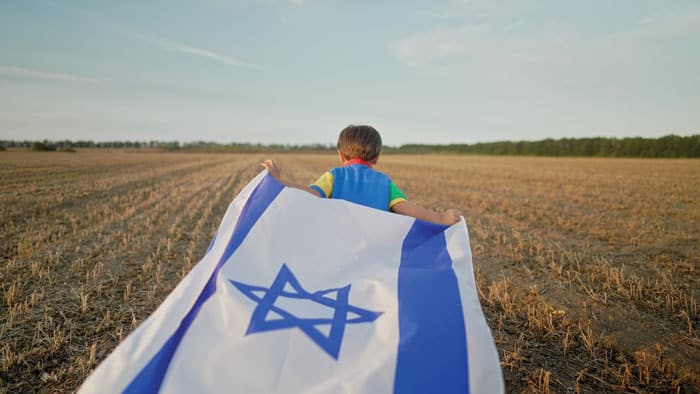 Kristina Kokhanova/Getty Images
Kristina Kokhanova/Getty Images It was a landscape of horror. Kfar Aza, one of the Kibbutzim ravaged during the Hamas massacre, is now filled with rubble and burned-out buildings. (The terrorists came ready with gasoline and tires to burn down the homes of those who wouldn’t leave their safe rooms.) While all of the bodies were already taken for burial, there still were the outlines on the grass where they had sat, unmoved, for over a week. We heard a first-hand report of the brutal murders and the extreme sadism of the terrorists. Shock, heartbreak, and anger competed for control of my heart.
This was no ordinary trip; our group made visits to people and places where we would see the hurt and suffering of Israel up close. One stop was at Shura, the army base tasked with processing the 1,200 people murdered during this massacre.
I was visiting Israel as part of a mission from Kehilath Jeshurun and Ramaz. But this was no ordinary trip; our group made visits to people and places where we would see the hurt and suffering of Israel up close.
One stop was at Shura, the army base tasked with processing the 1,200 people murdered during this massacre. There we met with Rabbi Bentzi Mann, a member of the army rabbinate. Rabbi Mann had never been involved in the preparation of dead bodies before; his previous duties as a reservist involved preparing army kitchens for Passover. When Rabbi Mann got called up on Oct. 8th, he thought it was a mistake. He arrived in Shura, which then was in a state of upheaval; there were bodies everywhere, in every room and every hallway. The small team there was overwhelmed by the emotionally difficult work of identifying and securing a dignified burial for these victims, many of whom had been violated in gruesome ways. He told us that in the first days he was there, refrigerator trucks that ordinarily transport chocolate milk and yogurt would arrive, filled with bodies instead; there were simply not enough funeral transports available. When they would open the cargo doors to remove the bodies, blood would come pouring out. Now, every time he sees a milk truck, Bentzi is reminded of death.
This is what trauma does. Something that is sweet and innocuous is transformed into a phantasm of horror; ugly thoughts intrude into the most wholesome of moments. Bentzi was telling us about coming home for a day, and playing hide and seek with his 3-year-old son; the boy found a white sheet and decided to hide under it. When Bentzi saw his son under the sheet, he burst into tears.
These difficult stories were everywhere we went; we heard from people who had witnessed the murders of their loved ones while quietly hiding nearby, unable to help or even say a word. We spoke to the families of hostages and visited the wounded in hospitals. We saw firsthand the pain and horror Israelis are experiencing.
Yet this heartbreak sat side-by-side with inspiration. We met heroes who on Oct. 7th rushed down south on their own accord to take on the attackers; we met medics who risked their lives to pull the wounded out of the battle zone.
Yet this heartbreak sat side-by-side with inspiration. We met heroes who on Oct. 7th rushed down south on their own accord to take on the attackers; we met medics who risked their lives to pull the wounded out of the battle zone.
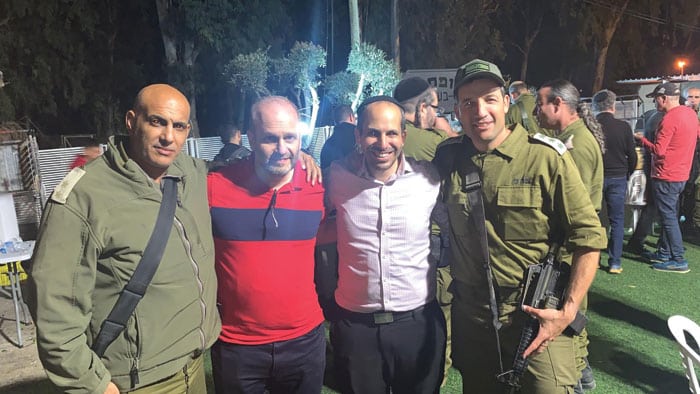
Nir, myself, Dr. Shilo Kramer, Colonel Shilo Adler
At an army base in Ofakim, I met Nir Hagbi, a Lt. Col. in the reserves, whose 18-year-old son Yehonatan was murdered by Hamas. Nir was away on vacation on Oct. 7th; his son was shot in the thigh during the attack. He was in constant communication with his ex-wife and son by phone; but it was impossible for medical help to reach Yehonatan, and he died of his wounds.
Nir came home immediately only to find out that his son’s funeral would be delayed by days because of the situation.
So Nir then made a courageous decision; he would return immediately to his unit. He went straight to the battlefront, and there, several members of his unit were killed and wounded. Nir explained his decision this way: “I chose to put aside my private pain for the moment, and fight for the country.”
This was not an easy decision. Nir explained “I’m in pain and I’m crying and I’m bleeding inside myself, but I’m also taking care of my country … I know my son Yehonatan was proud of me. That’s the father he knew.”
At one point, we stopped at a gas station. Behind the cash register was Masad, a member of Israel’s Bedouin community. He was a hero who had saved the lives of 14 people, hiding them in the service station and barricading the doors.
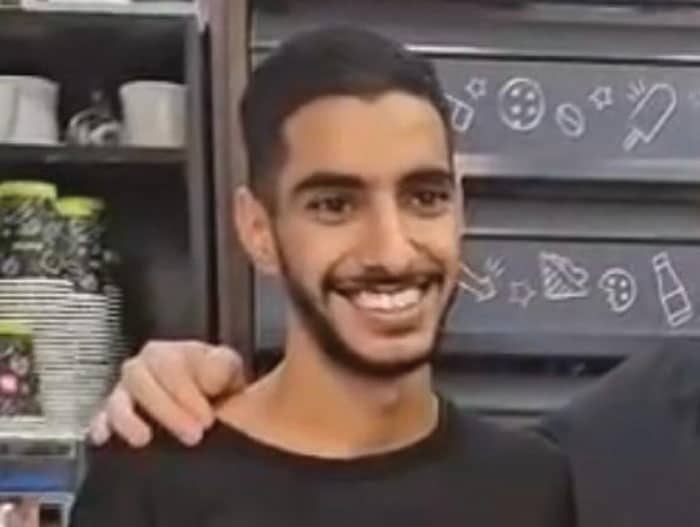
At one point during the mission, we stopped at a gas station. Coincidentally, behind the cash register was Masad, a member of Israel’s Bedouin community. He was a hero who had saved the lives of 14 people, hiding them in the service station and barricading the doors. We visited grassroots organizations helping evacuees from the north and the south; we met with Doctors working 16 hours a day, and volunteers who have given up their jobs to help those in need full-time. This exceptional sense of devotion is holding Israel together right now.
Most inspiring is that Israelis still have dreams. On Shabbat in Jerusalem, we read Parsha Vayetze, which begins with Jacob’s dream. Dreams have long been a metaphor for hope.
Most inspiring is that Israelis still have dreams. On Shabbat in Jerusalem, we read Parsha Vayetze, which begins with Jacob’s dream. Dreams have long been a metaphor for hope; Aristotle already called hope “a waking dream.”
Jacob’s dream is filled with extraordinary hope. It is of a ladder, on which angels are going up and down; it symbolizes that God is sending His emissaries to watch over Jacob and protect him wherever he goes.
Jacob has this vision at the lowest point in his life; when he’s homeless, penniless and fleeing from his brother Esau, who wants to murder him. He lies down to rest in a field, forced to use a stone as a pillow; and it is then that he has his dream of hope.
Jacob reminds us that at the worst moments in time, one needs to dream the most. As Langston Hughes put it:
“Hold fast to dreams
For if dreams die
Life is a broken-winged bird
That cannot fly.”
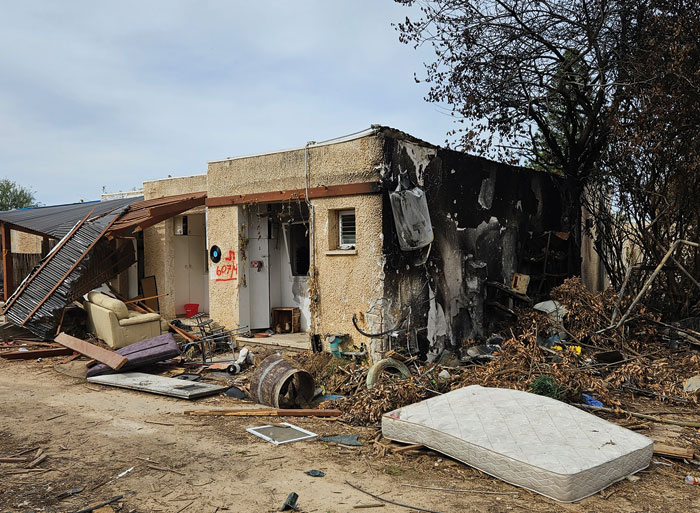
Jacob holds fast to his dream; and that changes his perspective. Rashi explains that after he wakes up, Jacob’s “heart lifted his feet up,” because he was now filled with hope.
Jews have always understood that you are what you dream. Rabbi Levi Yitzchak of Berditchev points out in his commentary that the Hebrew word for dreaming, “chalom,” is similar to the word for healing, “hachlamah.” Dreams of hope can heal a tattered soul, and give it the strength to continue forward.
Dreams have transformed Jewish history. In exile, Jews never stopped dreaming of redemption. Wherever they were, they prayed toward Israel and prayed to return to Israel.
Dreams have transformed Jewish history. In exile, Jews never stopped dreaming of redemption. Wherever they were, Jews prayed toward Israel and prayed to return to Israel. They ended their Seder declaring “next year in Jerusalem.” They knew one day they would be free.
This is actually astounding. It would seem absurd for this abject minority to have had any sense of optimism. However, to the poor Jew living in a hovel inside a ghetto, the dreams of redemption offered a lifeline. Even if everyone treated him as a cursed subhuman and a landless alien, the poor Jew could straighten his back and imagine that he was only a few short steps from returning to his beloved land of milk and honey. And these dreams not only maintained the Jewish connection to Israel; they transformed the lives of every Jew. By looking forward to the redemption, a Jew could maintain his dignity in the face of discrimination and hatred.
Like all other Jewish dreams, Theodor Herzl’s vision of rebuilding the Jewish State was absolutely absurd; many of his friends first thought that his pamphlet “The Jewish State” was meant as a farce. But the average Jew was galvanized by Herzl’s vision; they were ready to bring this dream to life. Herzl would later write “If you will it, it is not just a dream,” because dreams are only meaningful if you actually believe in them. And Jews believe in dreams.
Right now in Israel, there are still many dreams amidst all of the nightmares. On Shabbat morning I joined the Aufruf of Yoni, the son of dear friends. At the Kiddush, Yoni, a soldier so devoted he had to be pushed to go home for Shabbat by his commanding officer, gave a short speech. In Jacob’s dream, there is a ladder whose feet are on Earth, and whose head extends into heaven; Yoni explained that this is symbolic of the times we are in. Even if the ladder is stuck in our muddy and ugly reality, our heads must always be in the skies, filled with vision and values.
This idea is identical to Isaiah’s prophecy that one day swords will be beaten into plowshares. Judaism envisions the future redemption as much more than a return to Zion; it will actually transform all of humanity. Yoni spoke of this, and reminded us that even when we must make war, we still need to dream of peace. Yes, it is a horrible time; unquestionably there are many Palestinian civilians who are suffering profoundly in this war. Of course, it must be pointed out where the blame lies. They are largely in harm’s way because Hamas has turned all of Gaza into human shields. Hamas relishes civilian casualties, because they are of strategic value to them, a way of demonizing Israel. Unfortunately, supporters of Israel are sometimes reluctant to speak about the tragedy of Palestinian civilian casualties because it has been weaponized by Hamas and its enablers.
But that is no reason for us to forget Isaiah’s dream; and there are so many who have not lost sight of this vision. Eli Beer, the CEO of United Hatzalah, has a son who is a medic and serves in an elite combat unit. The soldiers don’t have their cell phones while on duty, and often can only speak to their families sporadically, and even then for a very short time. When Eli spoke to his son, he asked him to share the most significant moment of the previous week. His son told Eli that he had found a 12-year-old Palestinian girl who was injured, treated her, and sent her in an ambulance to Soroka Hospital in Beersheba. Isaiah’s dream is still alive even during this bitter war.
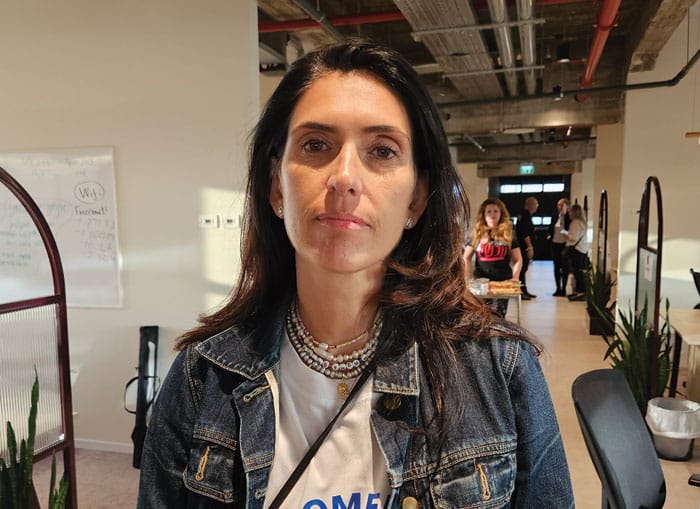
There are many other inspiring dreams everywhere. I met Shelly Shem-tov, whose son Omer is one of the hostages. She told me that she’s keeping his room exactly as Omer left it, cluttered and messy. She said that when he gets home, (and I emphasize, she said “when,”) she will hug him, then kick him in the behind and tell him to go back to his room and clean it up.
What an inspiring mother, what a powerful dream.
Racheli Fraenkel, who spent Shabbat with our group, spoke to me about the Day of Unity which she and her husband established after the kidnapping and murder of her son Naftali in 2014. She mentioned to me that this year, and the years to come, this day will be even more important. Israel was on the brink of civil War just days before this war; unity was a distant possibility. It is wonderful that in response to this crisis, Israel has become more united than ever before; but it is unclear whether that will remain once the war is over. Now is when we must dream again of unity.
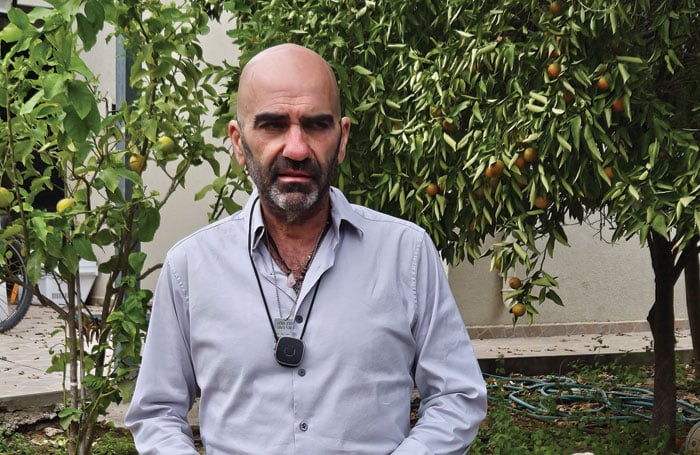
Doron Libstein, at the very spot where his brother Ofir was murdered
In Kfar Aza we were taken around by Doron Libstein, whose late brother Ofir had been the head of the regional council; Ofir ran out immediately to respond to the attack, and was among the first people murdered. Doron took us to the spot Ofir was killed and asked us to sing “Hatikvah,” Israel’s anthem of hope.
And Doron has hope. He wants to help Kfar Aza rebuild and become bigger and better. He wants to bring more people to this beautiful corner of the Negev and fill it with life and vibrancy once again. In the middle of a battleground, Doron sees a better future.
That is Doron’s dream. And we all must dream with him because dreams have kept the Jewish people alive.
Jacob taught us that at the worst of times, we need dreams more than ever. And now is the worst of times.
And that’s why now is the time to start dreaming.
Rabbi Chaim Steinmetz is the Senior Rabbi of Congregation Kehilath Jeshurun in New York.
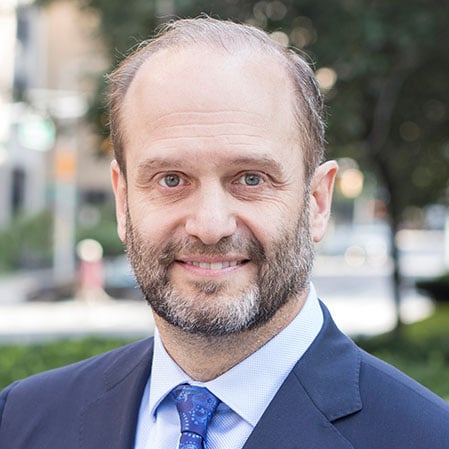






















 More news and opinions than at a Shabbat dinner, right in your inbox.
More news and opinions than at a Shabbat dinner, right in your inbox.